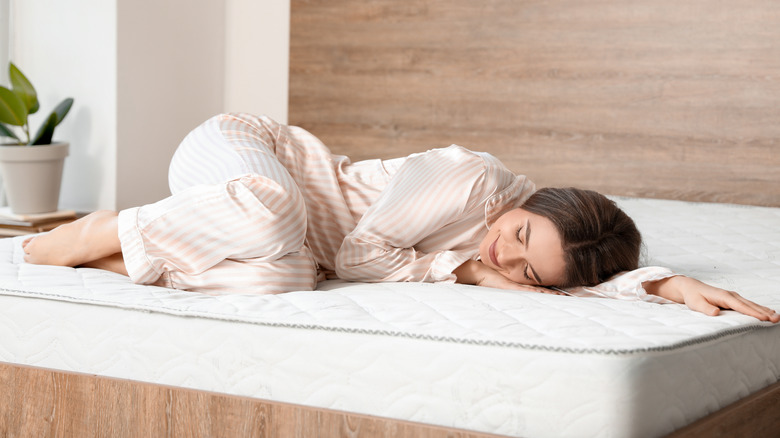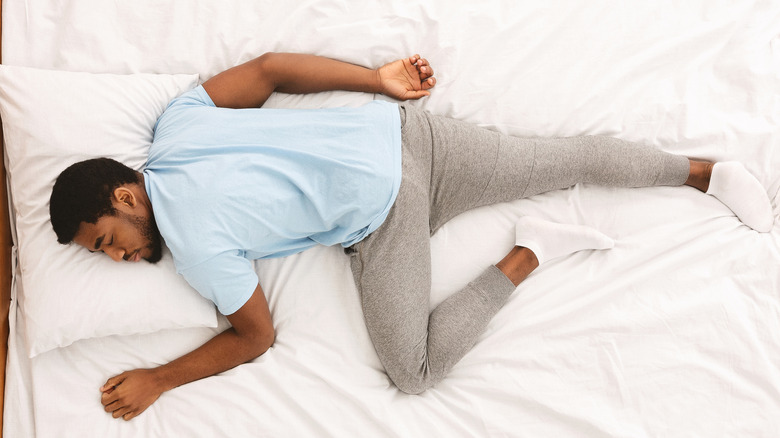Does Poor Posture Impact Your Sleep?
According to MedlinePlus, posture is the position you take to support the body. You usually have two postures — one while moving and the other when the body is static. The position you take during movement, such as while bending or walking, is known as dynamic posture. On the other hand, the position you maintain in a non-moving condition, such as when sleeping or sitting on the desk, is called static posture.
Maintaining a proper posture is incredibly important. A good posture enhances your appearance and is necessary for your long-term wellbeing (via Physiopedia). A good posture means that your shoulders, head, neck, and hip alignment is straight. When you're asleep, the back should have sufficient strong support that the ears, shoulders, and hips remain aligned, explains the University of Rochester. Poor posture – while moving or not — can lead to debilitating health issues such as chronic back pain, potbelly, joint degeneration, and even spine dysfunction, warns Better Health.
How can poor posture affect sleep quality?
Poor posture has harmful effects on sleep quality as well, reports Spine Nation. They warn that assuming an improper position during sleep (or even during the day) can increase your risk of insomnia. A 2021 study published in PLOS One found a link between sleep posture, spinal alignment, and the quality of rest. They found that people with spinal pain were more likely to have poor posture and low-quality sleep.
Similarly, 2020 research published in Sleep Health found that a higher body mass index may interfere with your sleep patterns. A 2016 study previously confirmed postural instability in young adults with obesity, as their pelvic region is often more tilted.
The American Sleep Association also reveals that children's sleep may be affected by poor posture. For example, children who fall asleep in unique positions, as is sometimes the case among those with Down syndrome, may be at risk of sleep disorders like sleep apnea.


